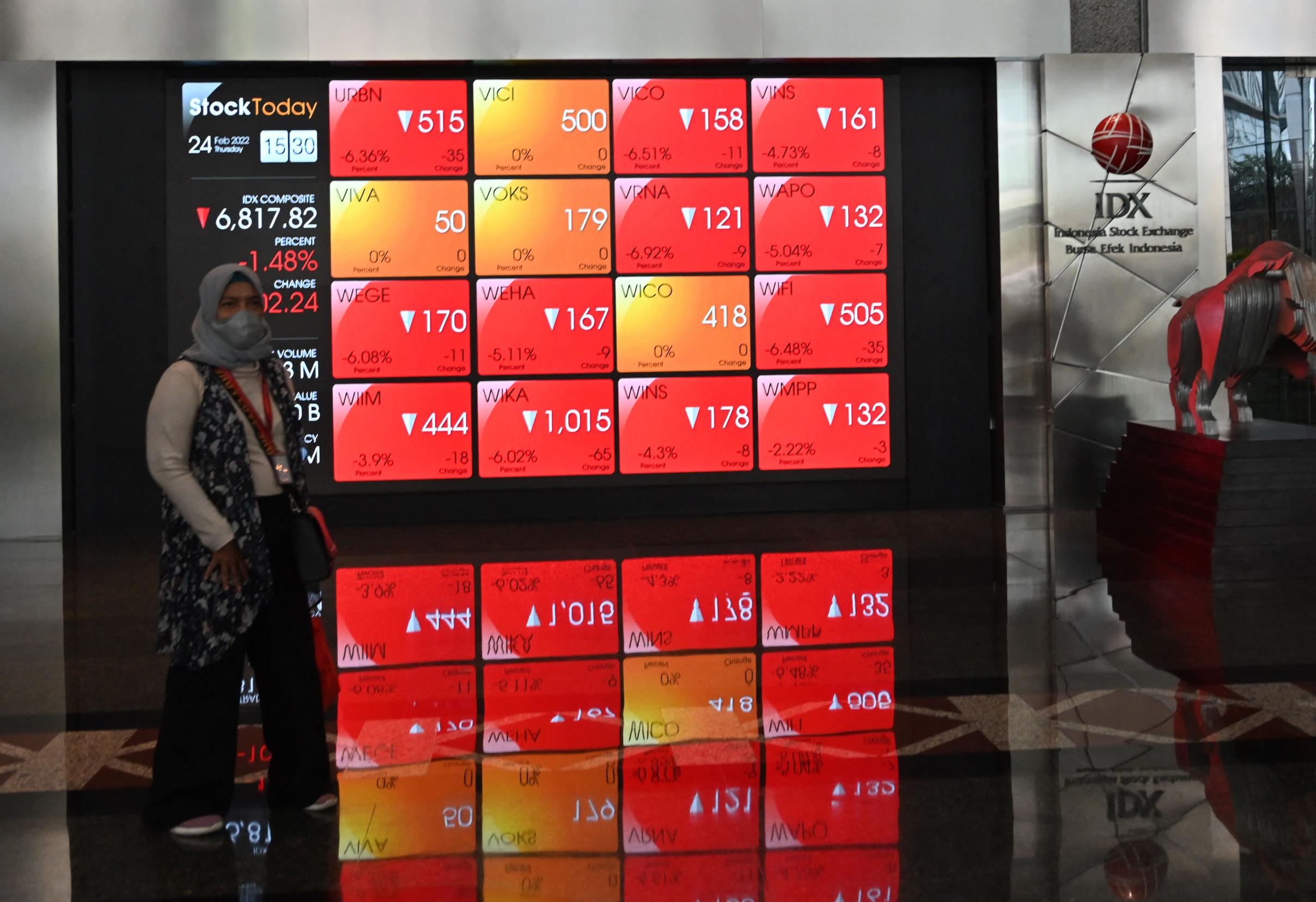Stock analysts remain remarkably calm on Russia’s invasion of Ukraine. ‘The peak of uncertainty has gradually been reached.’ Still, there are fears that inflation will rise further.
–
The stock markets started blood red due to the Russian invasion of Ukraine. For a while, the losses seemed to moderate somewhat, but by noon the stock markets are still 3 to 4 percent lower. The Bel20 dropped by 3.1 percent at noon. The Euro Stoxx50 lost 4.5 percent. Raw materials are on the rise: oil is already 8 percent more expensive and gas is no less than 30 percent.
Philippe Gijsels, chief strategist at BNP Paribas Fortis, admits the raid came as a surprise. “I didn’t expect Vladimir Putin to go that far, I thought he would stick to threats.” Still, the strategist is not pessimistic about the consequences for the financial markets. “We may be at the bottom right now. The peak of uncertainty – which markets do not like – should now gradually be reached. We now know that Putin is attacking Ukraine. The Russians may not go further than Ukraine. We do not expect the Europeans or Americans to deploy ground troops or to fire nuclear missiles. The economic impact will mainly be felt through the sanctions, but Russia and Ukraine do not weigh so heavily in the global economy.’
When uncertainty is greatest, there are often excellent buying opportunities. March 2020, for example, when the corona pandemic erupted and the stock markets crashed, in retrospect it turned out to be an excellent time to get into the stock market. ‘That’s because central banks were quick to support the market and the economy through low interest rates or massive buying programs. The situation is different now, because rising commodity prices and rising inflation mean that the room for central banks to support the market is much more limited’. Gijsels advises investors to gradually build up a buying list with qualitative shares that have become considerably cheaper in recent weeks.
• Follow the latest updates on the war in Ukraine in our live blog
Frank Vranken, chief strategist at Edmond de Rothschild and generally a bit more pessimistic, advises investors to watch the cat. “It’s too late to sell stocks, but it’s also too early to buy. I do not immediately recommend the typical safe havens such as gold, Swiss francs or government bonds. They also don’t seem to be really fulfilling their function as a safe haven, as they have risen much less than you would expect in such a crisis. On the other hand, the sell orders show that equity investors worldwide are not throwing in the towel en masse now.’
According to Vranken, similar conflicts, such as the American invasion of Iraq, show that military conflicts do not have an impact on the markets for long. “I do expect volatility in the markets to remain high in the coming days. The market is now mainly wondering what Putin’s next steps are. Will he advance to Kiev? His goal may be regime change in Ukraine. As a result, the military conflict will drag on for a while.’ Like Gijsels, Vranken does not believe that there will be a clash between European or American troops with the Russians. “The US and Europe will probably limit themselves to arms deliveries.”
What is certain for Vranken is that inflation will rise, because the conflict will make energy supplies more difficult for a longer period of time. ‘Inflation will therefore remain at a high level for longer. The main question now is how far the sanctions will go. Russia is especially important as a supplier of raw materials. Will the flow of Russian gas, grain or oil be stopped? Then Europe will have to buy it elsewhere in the world.’ Vranken agrees with Gijsels that this will create a difficult dilemma for central banks.
–


